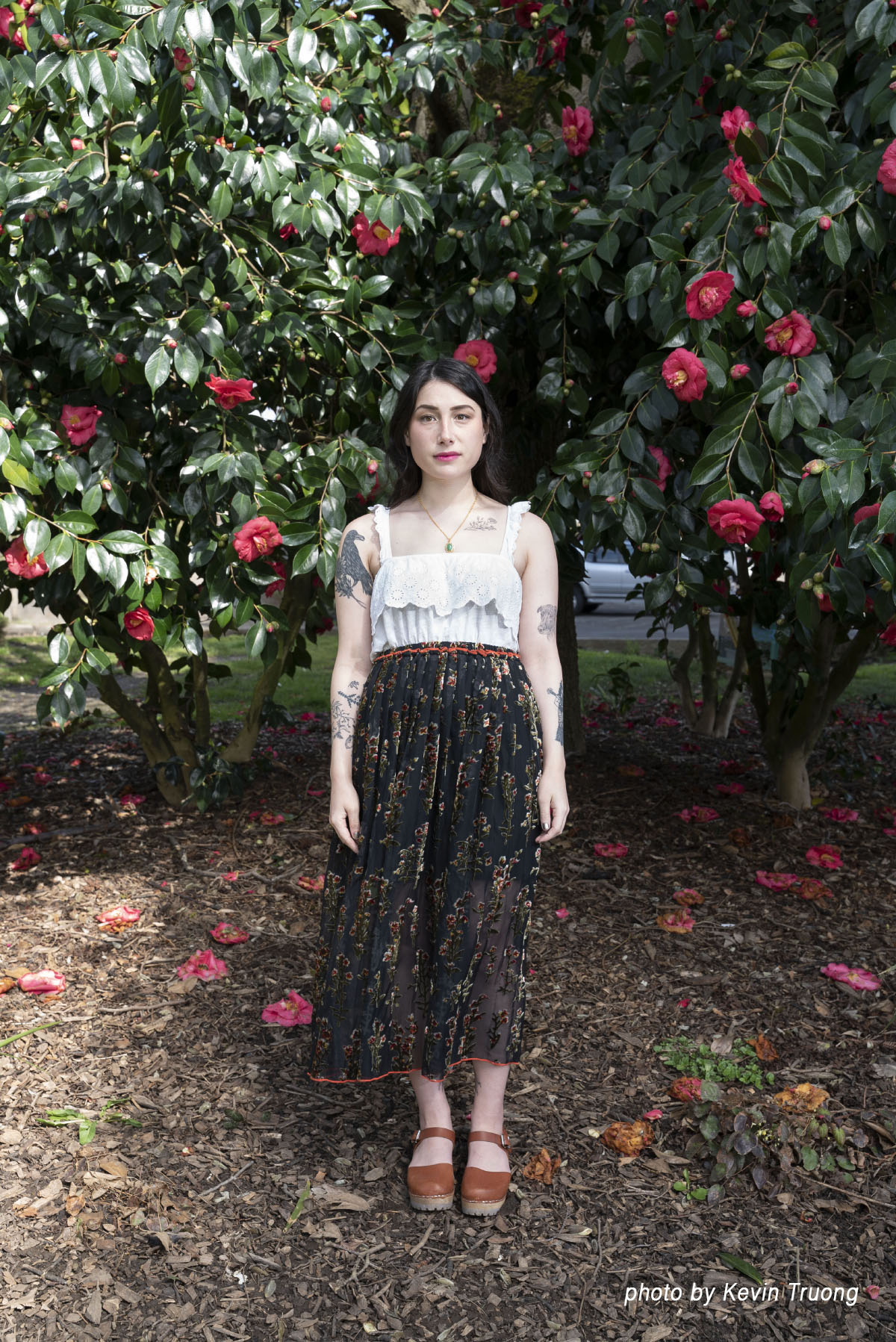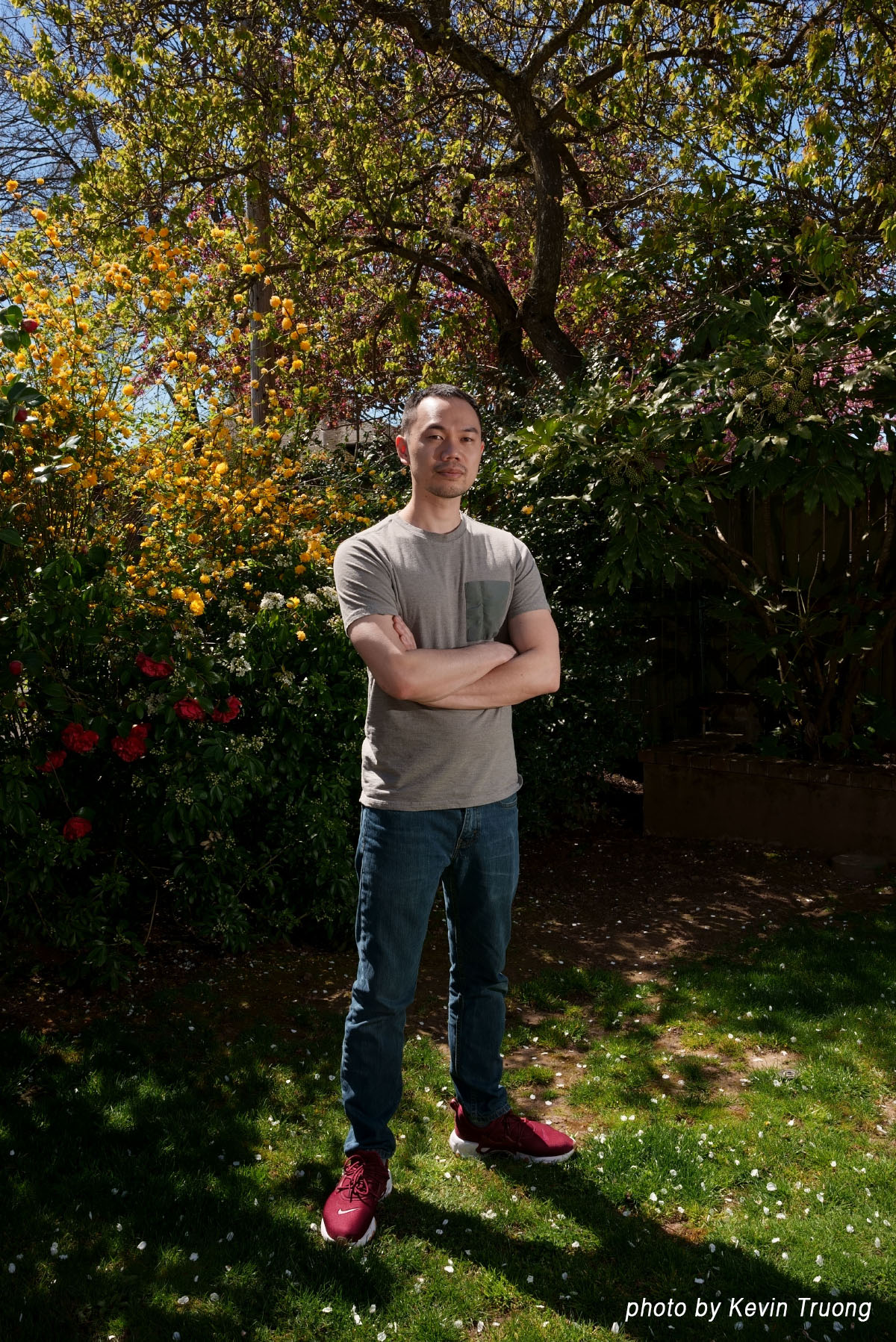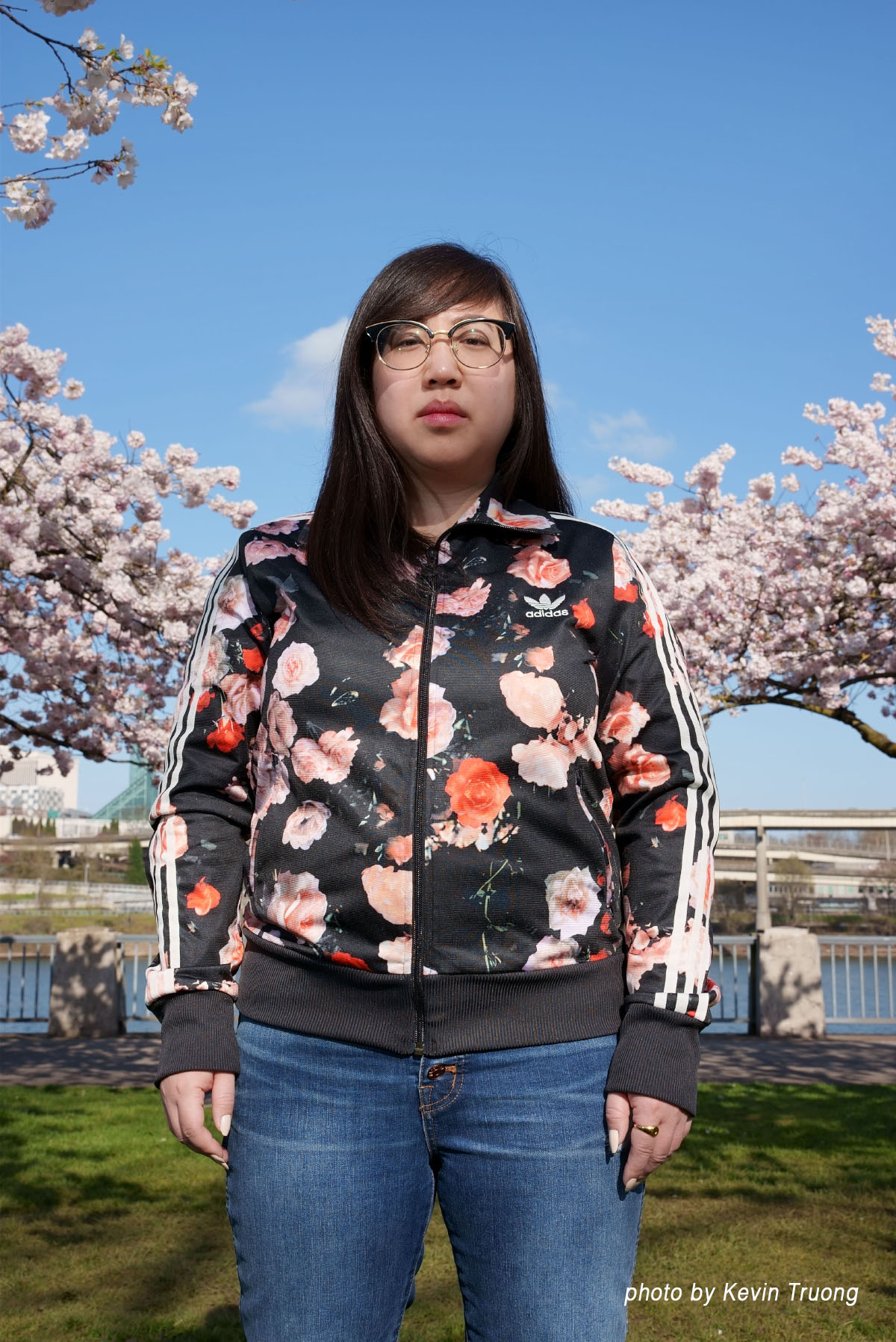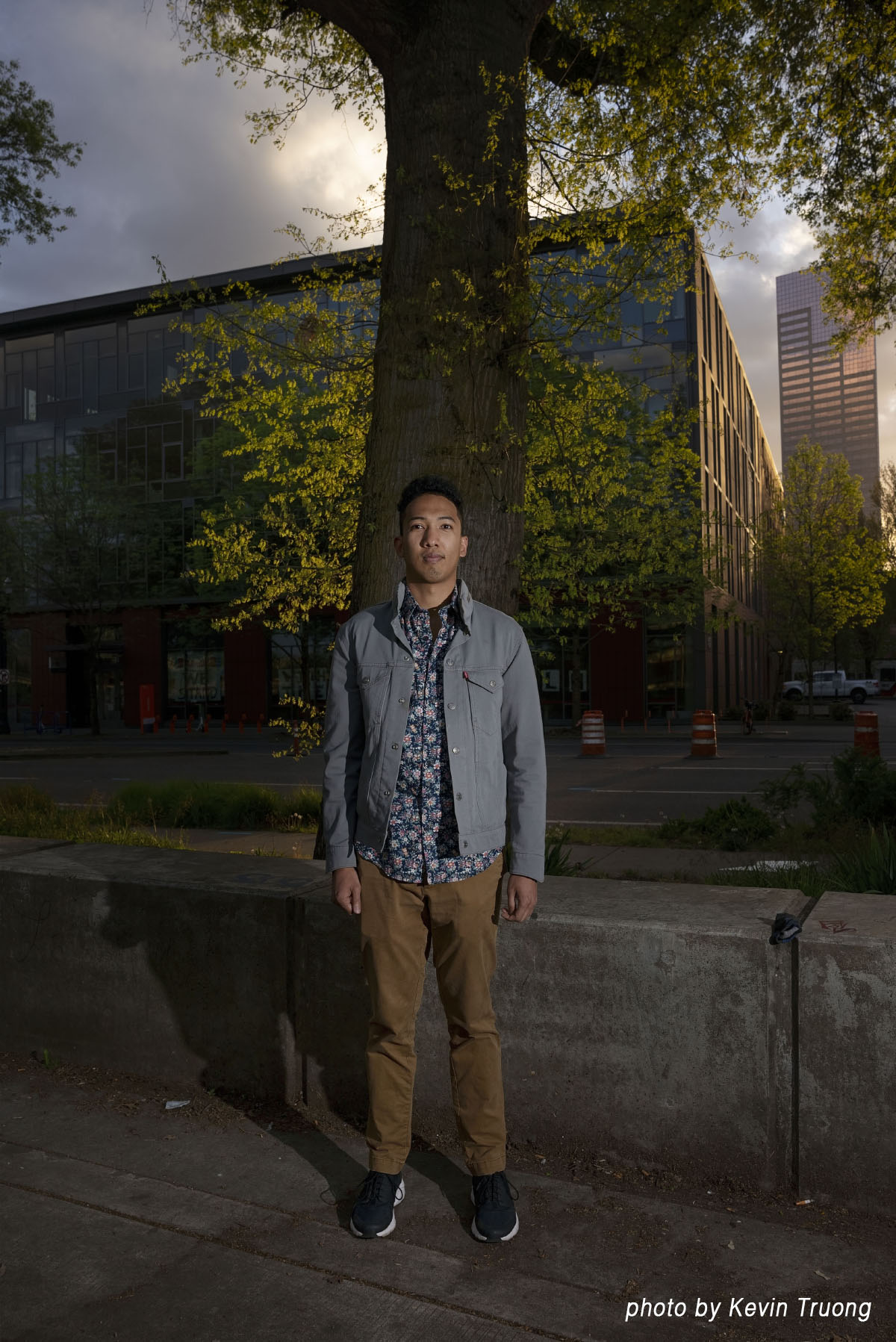a storytelling project

In Muhammad’s own words:
“[The United States] is a nice country. People are nice. But a little problem I had was due to my name, some people don’t like it. So I changed the name. Muhammad to Moe. Getting a job was a problem sometimes. I had one place, they fired me from the job…no reason. He said, “I can’t understand your language.”
I speak English and I’m a graduate.
I wrote a letter to the company, and they gave me the back money and everything, and they said, “We’re sorry about that. You are fine.” And then they hired me back. Then I was going to be assistant manager over there. Same place.”
These things are personal things that people are doing. That’s a personal matter. Not the country’s fault or anything.”

In Brogan’s own words:
“These are some of the racial slurs that have been directed at me and my mother: FOB GOOK Mulan Chink Jap Slant eyes Dog eater. Growing up, I felt ashamed and often wished that one day I would wake up and not be Chinese anymore. In addition to hearing these slurs at school and out in the world, I saw my mom constantly pressured and made uncomfortable by predatory men — society had taught them that Asian women are subservient. Society allowed them to treat us as sub-human. Stop violence against our elders. Stop fetishizing us. Stop stereotyping us. Stop discounting and quieting us."

In Samson’s own words:
“I've experienced a lot of racism resulting in shame. Shame of who I am as an Asian American and as a queer person. It often feels like I don't fit in or belong. Or that I can never truly be myself around others. I've been called names. I've been threatened. I've been made to feel unsafe. I want to stop others from viewing me as the "other" in America. I grew up on a farm in Arkansas raising chickens. I was in 4-H Club and Future Farmers of America. I have my lived experiences as an American and I deserve to be American unhindered. I wish people would get to know me before having these ideas that I don't belong based on how I look.“

In Janey’s own words:
“It is all too easy to condemn an act of violence when it results in bodily harm, or worse, death. Why though, do we even let it get this far? The violence of racism is pervasive in everyday life for BIPOC, perhaps most predominantly in the form of microaggressions that often translate into trauma. These seemingly inconsequential acts add up, and contribute to the normalization of a culture that culminates in hate crimes.
Microagressions cut deeper when they come from your loved ones, your mentors, your friends. To give you an idea of how this shit stays with you, one of my earliest memories of a microaggression came from my 4th grade teacher when I was seven or eight. My class was assembled in a line in the hallway, and I was standing near my teacher at the front. This authority figure, who was charged with the molding of young minds, decided to use my last name as a punchline -- she asked me, “Do people call your family and then say, ‘Oops, I got the WONG number!” when you pick up?” I remember looking at her in confusion at the time. Now, it just makes me fume.
STOP being negligent with words and actions.
STOP white supremacy, xenophobia, and toxic masculinity.
We need to START recognizing the interconnectedness of systems of oppression. Our fights against racism, climate change, misogyny, transphobia, police brutality / the carceral state are not and cannot be treated as mutually exclusive.
START the unglamorous, arduous, and ongoing work of decolonizing your mind.”

In Tai’s own words:
"My family on both sides instilled in me a strong sense of identity from a young age, as they knew I would encounter discrimination in my life. We left Japan when I was 3 and my grandparents frequently sent our family care packages. Tons of Japanese VHS tapes, Pokemon cards, snacks, clothing, etc. which I thoroughly enjoyed and would share with my cousins and friends. This combined with the lessons, energy, pride, and pain of also being a Black man in America were my foundation. There wasn't many Black or Asian students in my elementary school and I have distinct memories of my grandmother talking to my class about Black history, reading books to us and talking to us about Africa. I also have distinct memories of my mother talking to my classes about Japanese culture, and bringing in memorabilia and food too."
"I attribute my ability to shrug off racism when I was younger to my family instilling these values in me. However, I hate seeing people being taken advantage of and as I entered college I became more vocal with addressing racist behavior. One of the most common examples I've seen have been with individuals whom speak English as a second/third/etc. language. Seeing my mother struggle to learn and speak the language was a pain point for me and was an early peek into a type of racism that immigrants experience in America. Even if they're multilingual, which most Americans ironically fail to do."
"The majority of experiences I've had w/ racism around my Asian identity has been when people make an ignorant/racist remark about Asian people -- not knowing that I'm half-Japanese and can speak and write the language. I always follow up these instances with correcting them and addressing why it's not acceptable. It's exhausting at times but our racial identity is something always present and if I can protect and be a voice for marginalized communities by speaking up then I would gladly address these challenges."